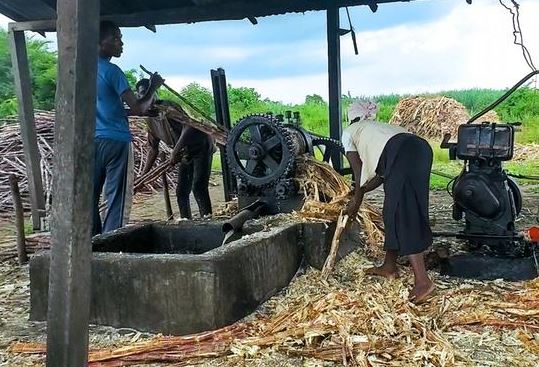Nov 19 (DW) – In Ghana, sugarcane was once big business. But around 40 years ago, the industry started to decline, and today, all the country’s large factories are closed.
But that major downturn didn’t stop Audrey S-Darko from wanting to know more. Together with other students, she founded the Sabon Sake project and got in touch with small farmers who mainly grow sugarcane. Using biotechnology in her university’s laboratory, the young Ghanians developed a bio-compost fertilizer from sugarcane waste that could ensure better soil quality.
Subscribe to our Telegram channel for the latest updates from around the world
Most of the farmers in the region still use a lot of chemical fertilizers and burn their crop waste in the fields after the harvest, which severely damages the soil. Audrey S-Darko is showing them how to use the new fertilizer to increase crop yields.
READ: Remains of ‘rare’ toothless dinosaur species discovered in Brazil
Currently, S-Darko is the group’s only full-time employee. In the Volta region in the southeast of the country, she has set up a small production facility to make the organic fertilizer. She has also started an organic farm and brought together a network of 30 sugarcane farmers who have committed to using sustainable cultivation methods.
Looking further afield, the group wants to scale-up the project to also help vertical and urban farmers by supplying them with fertilizer. As more people grow their own vegetables at home, it is a large untapped market with huge potential for the tiny initiative.
For similar articles, join our Telegram channel for the latest updates. – click here





























































